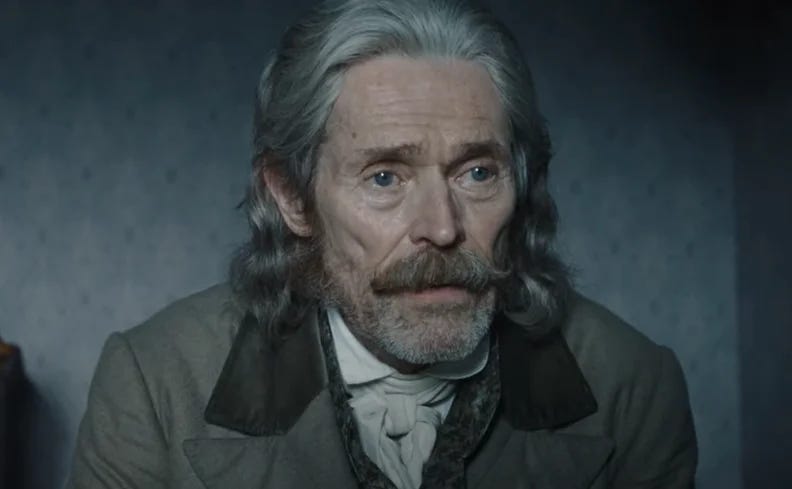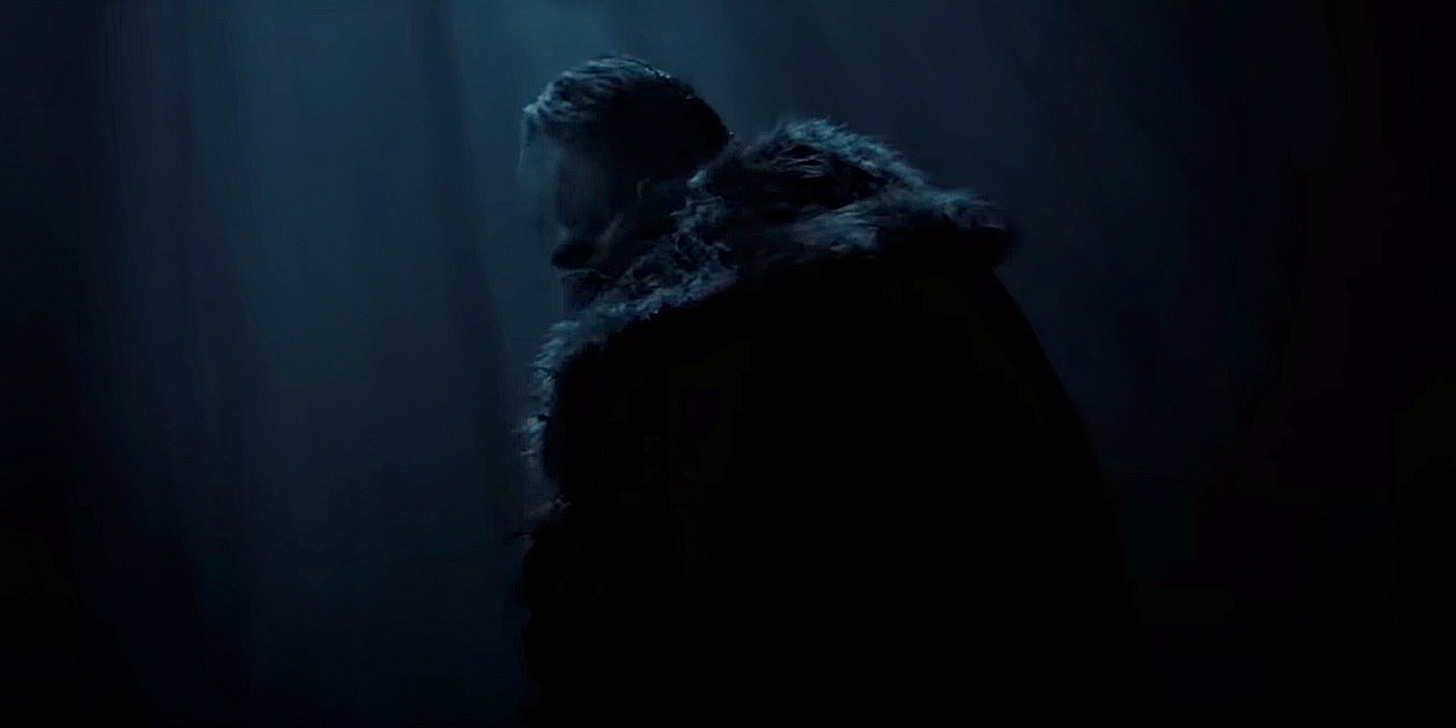Robert Eggers’ fourth feature-length work starts with a bang as Lily-Rose Depp’s character’s encounter with the vampire feels like we’re witnessing some sort of sexual possession. We get a very quick glance at the monster performed by Bill Skarsgård, whose appearance doesn’t match the stereotypical vampire. This, on top of the sexual element, misleads us into thinking we’re in for a very interesting adaptation of the classic tale. However, this strong introduction is as good as the horror gets.
The focus shifts between Ellen Hutter (Lily-Rose Depp) and her husband Thomas (Nicholas Hoult). Only when we’re following the focus point of Ellen do the talents of this work shine. Ellen’s journey feels overtly sexual as she’s possessed and haunted by the vampire, Count Orlok (Bill Skarsgård). There’s this great underlying tone that is both erotic and disturbing as she flirts with the indulgence of death. Her recollection of her dreams reveals this disturbing psyche, as she recalls getting married at the altar and once she and Thomas turn around to look at their guests, they were all dead. She says she never felt so happy. Thomas insists she must never speak these things aloud.
Whenever we follow Thomas’s journey away from Ellen, there is a longing to get back to her hallucinations and dialogue with death. It’s where the only interesting stuff is happening. As Thomas verges closer into the lair where Count Orlok resides, it’s clear that Eggers is trying to create an atmosphere of dread and uncertainty that aims to disturb your comfort. It’s evident in the score, and the cinematography, it’s everywhere. It has the right ingredients but is unable to produce the desired effect. Despite admiring what he’s trying to do, there’s no sense of fear. While drama and intrigue exist, it’s just not engaging enough.
One of the biggest problems with Nosferatu is that its monster isn’t scary. In Nosferatu: A Symphony of Horror (1922), there’s something chilling about the appearance of Max Schreck’s portrayal of the vampire. In theory, you’d think that Bill Skarsgård has a distinctive enough appearance to produce a similar effect. The sound of Skarsgård taking on the form of a vampire does sound as if the results could be terrifying, but it fails to do so. What we get is a completely moderate portrayal that won’t burn into your mind as Schreck’s did back when the craft of filmmaking was just getting started.
For a monster who lurks in the dark, he seems to be awfully overexposed, arguably taking away any tension or aura of disturbance. While the vampire may not be good at sparking chills, the sexual element rears its head again, to the point where you’re almost unable to deny that this tale is highly sexual in its nature. As Orlok drinks the blood of his victim who is lying on his back, it’s almost as if he’s gyrating on his groin.
While Lily-Rose Depp and the sexual aura heighten the experience of Eggers’ Nosferatu tale, no other elements catch fire. Eggers does seem to hold a reputation as being one of cinema’s most beloved directors in the last decade. A lot of excitement is generated over his work, with his debut film The Witch (2015) setting him off on a rollercoaster with cinema-goers. His following features The Lighthouse (2019) & The Northman (2022) generated high anticipation rare for a filmmaker who holds just a few titles to his name. Although these works were successful and generated a lot of buzz on their releases, you look back on these films years ahead and realise that all that stays with you is the title. I struggle to recall any defining moments in The Witch & The Northman. Regrettably, Nosferatu is just as forgettable.
Out in UK cinemas 1st January 2025








